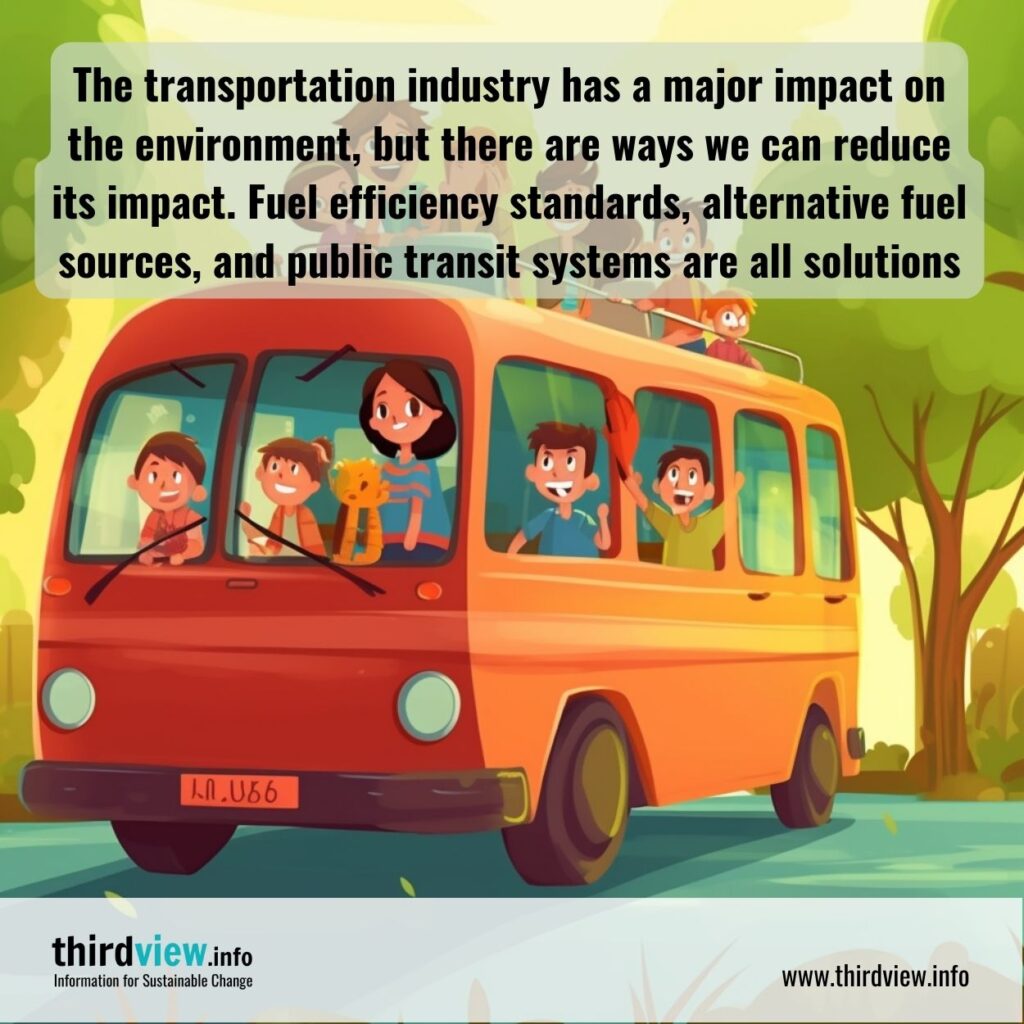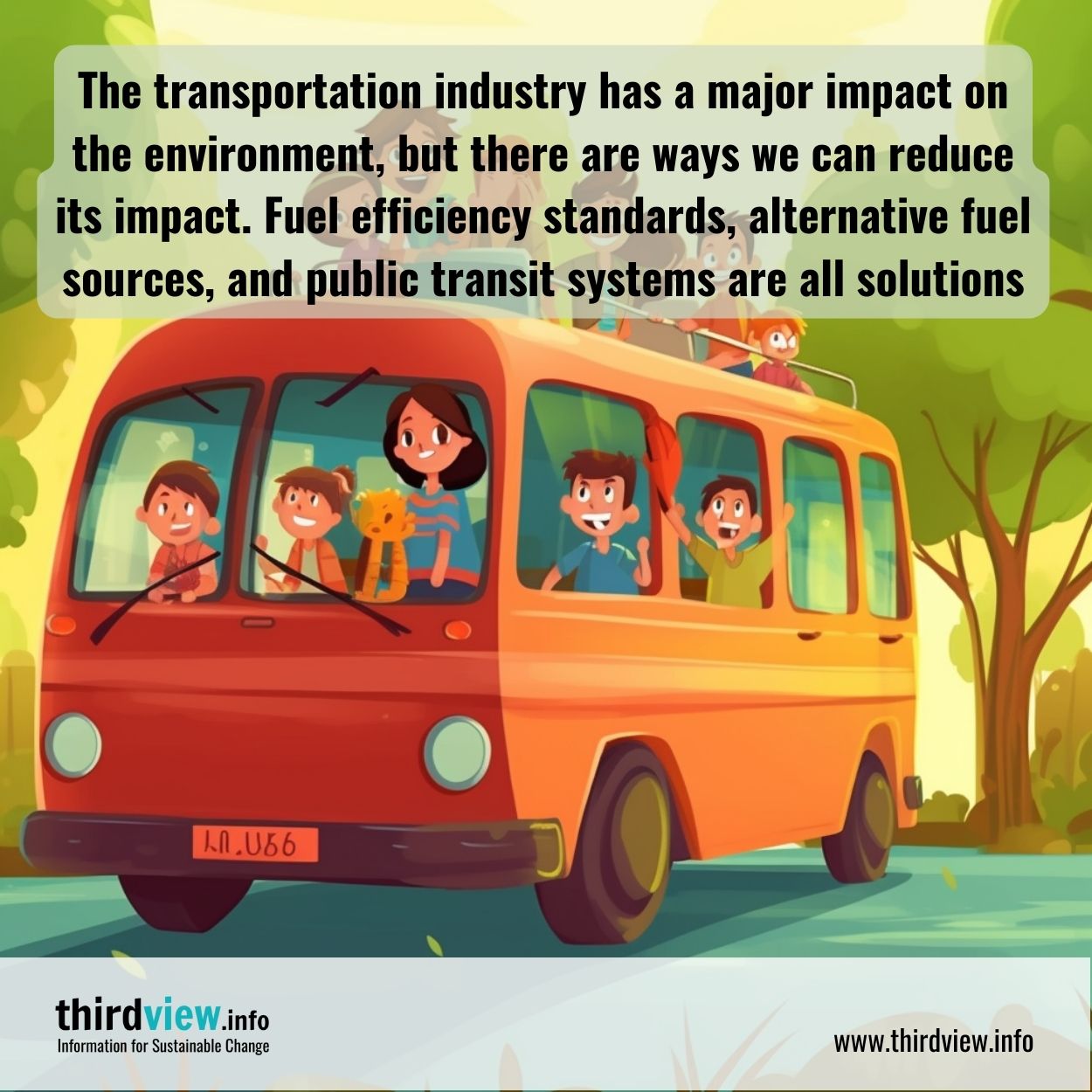The transportation industry has a major impact on the environment. With the global population continually increasing, there is an ever-growing need for efficient and affordable transportation. However, this increased demand comes with a hefty price tag — increased emissions of greenhouse gases and other pollutants into the environment. Fortunately, there are several ways that we can reduce the environmental impact of transportation. Let’s explore some of them.
Fuel Efficiency Standards
One way to reduce the environmental impact of transportation is to set fuel efficiency standards for vehicles. By setting strict standards for fuel efficiency, governments can help reduce vehicle emissions by encouraging manufacturers to build more efficient vehicles that burn less fuel and produce fewer emissions. Governments can also encourage consumers to purchase more fuel-efficient vehicles by offering tax credits or other incentives for buying green cars.
Alternative Fuel Sources
Another way to reduce the environmental impact of transportation is to invest in alternative fuel sources such as electric cars and biofuels like ethanol or biodiesel. By investing in alternative fuels, governments can help reduce dependence on fossil fuels while also reducing emissions from vehicles since these alternative fuels produce fewer pollutants than traditional gasoline or diesel engines. This can be done through subsidies or government investment in research and development into new technologies that use alternative fuels instead of gasoline or diesel.
Public Transit Systems
Finally, public transit systems are one of the most effective ways to reduce the environmental impact of transportation because they allow people to travel without having to use their own personal vehicles. Governments should invest in public transit systems such as buses, subway systems, light rail networks, and bicycle lanes so that people have access to reliable and affordable transportation options that don’t rely on fossil fuels or cause air pollution. Investing in public transit systems is also beneficial because it helps create jobs in construction, engineering, and other related industries which can benefit local economies as well as the environment at large.
We must take action now if we want to reduce the environmental impact of transportation before it’s too late. There are several steps we can take including setting fuel efficiency standards for vehicles, investing in alternative fuel sources like electric cars and biofuels, and investing in public transit systems like buses and light rail networks so that people have access to reliable and affordable transportation options without relying on their own personal vehicles which cause air pollution. Taking these steps will help us move towards a more sustainable future where our planet is protected from further damage caused by our over-reliance on fossil fuels for transportation needs. It’s time we all do our part.


